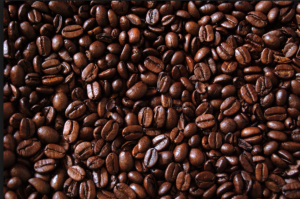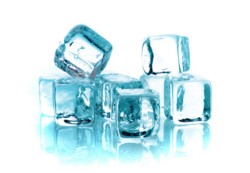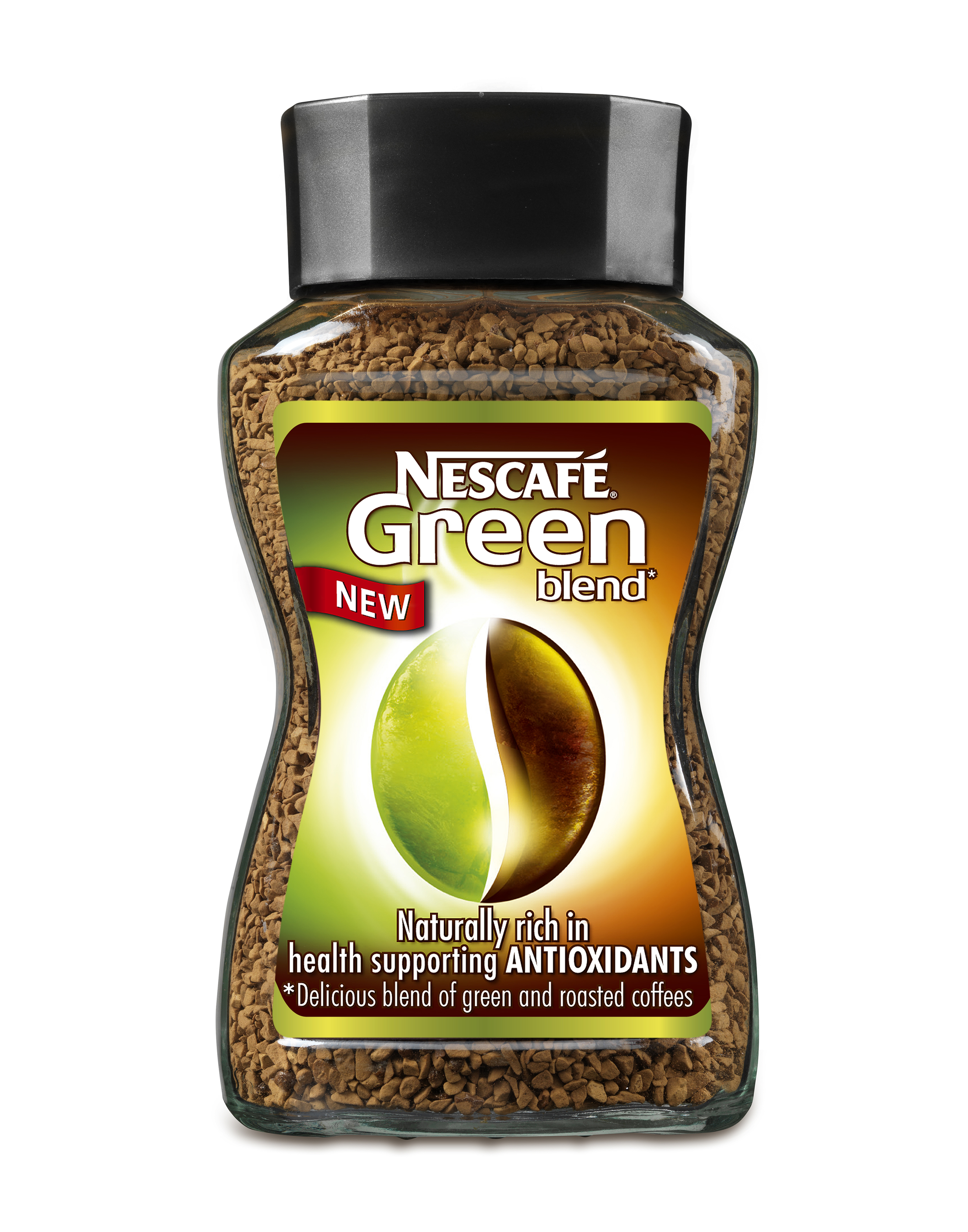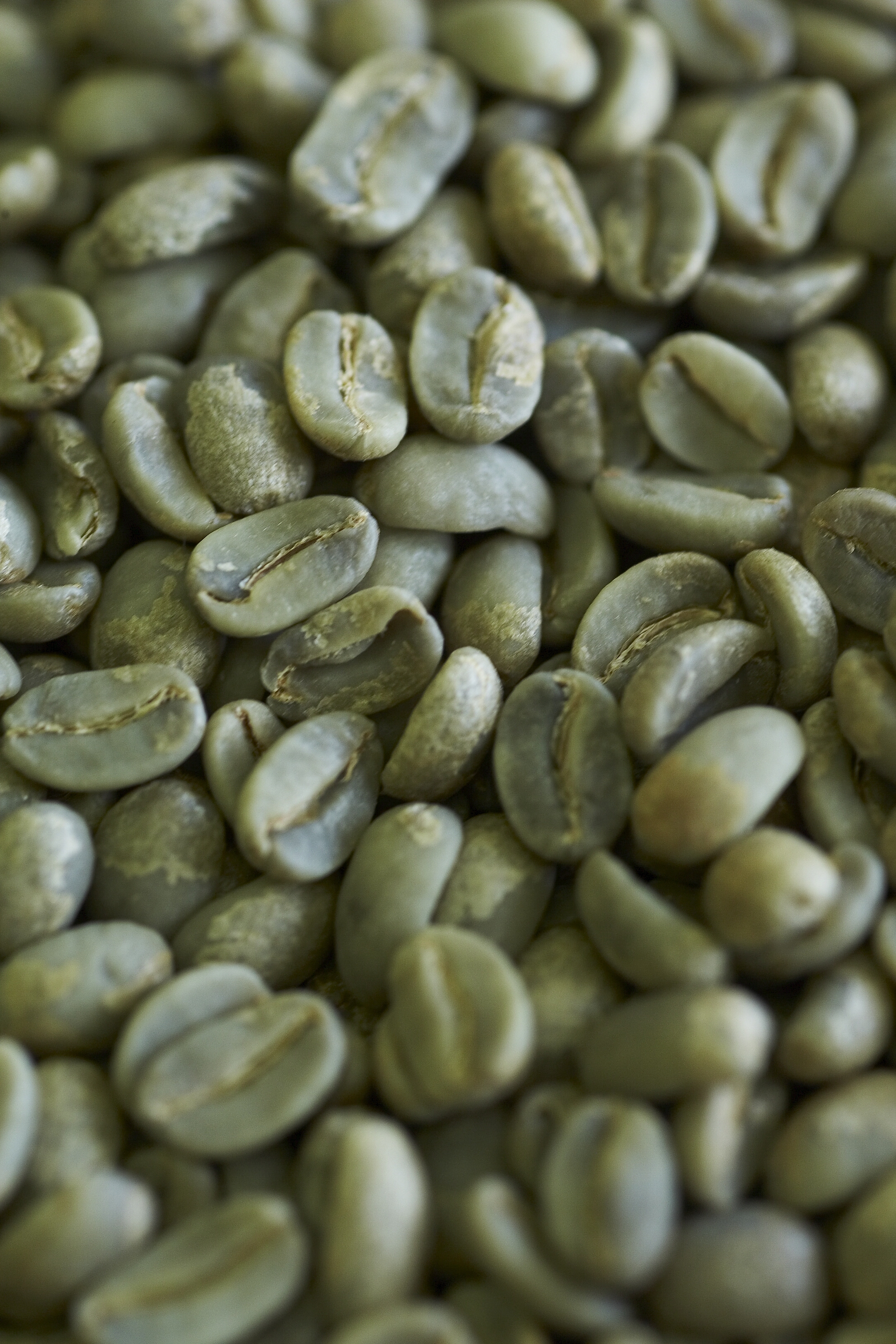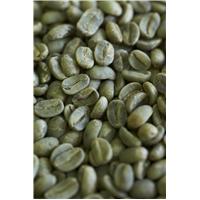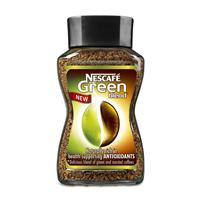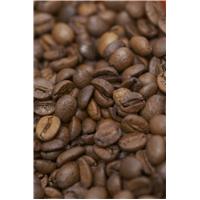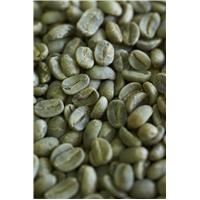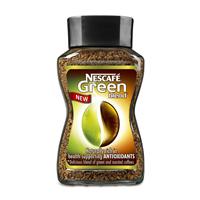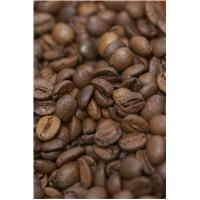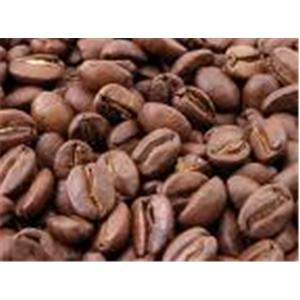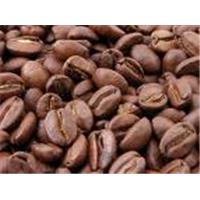Drinking strong coffee may be good for the liver, scientists in the US have discovered.
Coffee drinkers were found to have lower levels of abnormal liver enzymes that are a sign of damaged liver cells.
Researchers used information from the US’s National Health and Nutrition Survey to determine their findings.
The team measured the levels of enzymes in blood to determine each participant’s liver function. The enzymes include aminotransferase (ALT), aminotransferase (AST), alkaline phosphatase (ALP) and gamma glutamyl transaminase (GGT). Lower levels of these enzymes present in blood is a sign of good liver health.
They are usually present when liver cells are damaged or destroyed, or if the flow of the bile produced by the liver becomes blocked.
The new study included 27,793 participants, aged 20 years or older, who recorded how much coffee they drank in a day.
The scientists concluded that coffee may contain a chemical compound other than caffeine that could protect the liver, which is why decafinated coffee also has protective qualities.
The findings back up a number of previous studies which found that coffee consumption may help lower the risk of developing diabetes, stroke, liver disease, and cirrhosis liver damage.
Participants who reported drinking three or more cups of coffee per day had lower levels of ALT, AST, ALP and GGT compared to those not consuming any coffee.
Researchers also found low levels of these liver enzymes in participants drinking only decaffeinated coffee.
Dr Qian Xiao from the National Cancer Institute in Bethesda, Maryland said that previous research had already found that drinking coffee may have a possible protective effect on the liver. But it was not clear whether drinking decaffeinated coffee also conferred the same effects.
He said: “Our findings link total and decaffeinated coffee intake to lower liver enzyme levels. These data suggest that ingredients in coffee, other than caffeine, may promote liver health.”
The findings were published in the journal Hepatology, a journal of the American Association for the Study of Liver Diseases.
Greek islanders live longer with coffee
Scientists have found that people living on the Greek island of Ikaria enjoy a longer, healthier life span and it may be due to the way they prepare their coffee. Instead of using methods that remove beneficial polyphenols, they boil it in a way that retains its unique compounds.1 Greek islanders who consumed this polyphenol-rich coffee were found to have healthy endothelial function that scientists suggested may play a role in their longevity.1
Among the most beneficial coffee polyphenol is chlorogenic acid, an inhibitor of an enzyme called glucose-6-phosphatase. This enzyme stimulates the excess creation of glucose in the liver, which can result in blood glucoseelevation.
Organic coffee beans are best
These beneficial antioxidants are more bioavailable in organic coffee. One product is the Rich Rewards® Breakfast Blend Whole Bean Coffee is made using a patented, 100% natural process called HealthyRoast®.2 This process delivers a more complete nutritional profile of the coffee bean, yielding up to 87% more chlorogenic acid than conventional coffees.
Handpicked deep in the rainforests of Central America, Rich Rewards® consists exclusively of 100% USDA certified organic arabica coffee beans, gently roasted in small batches—with the polyphenols then added back in to provide optimal health benefits.
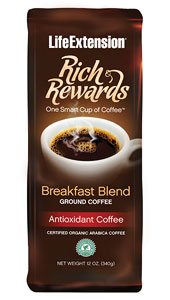
Buy at www.vitalityshopuk.com
Organic Ground
Ground organic coffee is also available Rich Rewards® Breakfast Blend Ground Coffee—so you can kick-start your day a little faster—in both caffeinated and decaffeinated options. For those who prefer a flavored coffee, Rich Rewards® Breakfast Blend GroundCoffee is available in natural vanilla or mocha flavors. Like our regular Rich Rewards® whole bean and ground coffees, these flavored ground coffees are roasted using the patented HealthyRoast® process—which preserves the special, naturally occurring coffee compounds that soothe (instead of irritate) your stomach.
This unique process also guarantees a higher content of healthy polyphenols.
Life Extension® Rich Rewards® Breakfast Blend Coffee provides it all:
• Whole bean savory taste
• Ground coffee for added convenience—caffeinated or decaffeinated
• Regular ground coffee taste or two natural-flavored options
• Far higher percentage of chlorogenic acid than conventional coffees
• Certified organic
• Special, naturally occurring compounds that soothe your stomach
a

